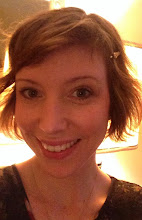Structured Thought
Structure. Ah, glorious structure. You can't raise a house without first putting the eaves in place. You can't bake a cake without the pan. So, as writers, how do we expect to construct books without ever really knowing where they are headed? Andre Breton would kick me for saying that.
I do not want my memoir to be boring. I do not want it to be self-absorbed. I think, more and more, that the book really is more about my father (Al) than about me, my painful daddy issues or about us as a duo. I do think the father/daughter relationship is central to the book, but not the main story. The main story is that a life was upended, interrupted, snipped at the umbilical cord before it ever had a chance to rewire itself and be fixed. Those of you who know me well know what I mean when I say this in terms of my father.
So, if the book is more about him, what is the structure of the book?
Let's play a game. You pick between #1, #2 and #3.
#1. The overarching structure has to do with Al's writing. His poetry pulls together each chapter or his notes/diary entries create an arc over the entire book. In this way, the novel may not be chronological, but the poetry and Al's work over the years will hold it together. This doesn't mean half the book will be taken up by his work, but that brief snippets will serve as stepping off points.
#2. Our father-daughter relationship serves as the structure for the book. The story is told chronologically, from my earliest, insubstantial memories of visiting him as a 5-year-old girl and continues on until I receive the news that he has died and I have to clean up after him.
#3. The Wild Card. I tell a finite story from August 2003 to about October 2003, the cleaning up of the apartment. Through the cleaning up and the following of me through a consistent present action (Meredith at the morgue, Meredith at the police station, Meredith at the apartment killing off flies), I make discoveries about my father, I reflect on the past (here's where the childhood stories pop up) and I pay tribute to the life he could have lived.
Pick one, or two, and let me know what you think.


3 Comments:
Hey Mere,
Your idea for option one reminded me of Joao Beihl's book Vita. Officially, it's an ethnography, but he powerfully incorporates the writing of the woman who is the focus of the book. Whether or not you read it while your writing this, read it at some point. it's one of the best books i've read. ever.
I like option one for a book. I love option three for the screenplay (its inevitable. . . think of the people we, collectively, know). Something about the chronology will be hard to narrate, especially with so many empty spaces inbetween your memories. . . though maybe that's where you fit in the relationships you've had outside of your dad, and how they changed and built you. Meeting your beloved, for example. Growing up with women who didn't have "broken homes." That could be a neat way to relate to your father, without overtly relating to him.
I can't wait to get my hands on it.
Mere,
Honestly, you're best bet might be a combination of all three elements. I am personally a fan of finite stories, ones in which specific events are detailed and the implications of those events acting more like tangents off the main storyline.
All stories begin with first steps, so think about beginning the story with opening that apartment door. Be there. Take your readers with you to that impossibly hard place.
Because this book is not only the story of you and your father. This book is truly the story of THIS BOOK. Why are you drawn back to this over and over? What captivates you about it? How has your father made you who you are--whether actively or passively--and how do you deal with it?
You do have many times in your life when your father wasn't there. Try to piece together what he was doing during these times. You know what you were doing. Maybe his writing is a clue to how he lived his life? You must implement the writing into the framework of the story without it dictating the flow of the story. Again, this is not a book solely about him. This is your book, and this is your book about your book.
All this might not make sense. I think I'm trying to say stuff and not getting the full message across.
I guess what it comes down to is: if you sat me down and told me this story orally, how would you organize it? What would you start with? I think that is the way to go. It has to be perfectly natural--not staged or too constructed. Just talk to the reader. Just talk, and you'll be fine. Everything is on the table. So use everything.
Post a Comment
<< Home